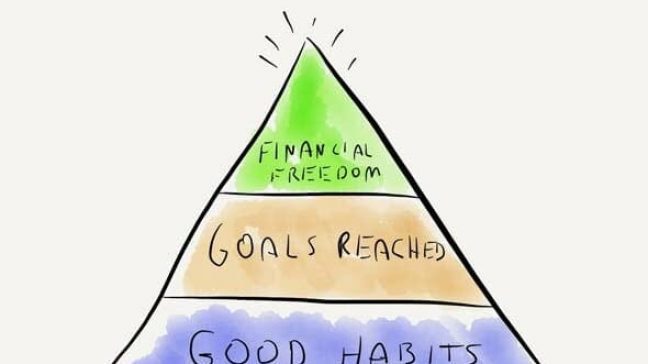By Noluyolo Betela
What do you aim to achieve financially? If you don’t have a financial plan in place, now is a good time to kickstart the process.
If you do have a financial plan, review your short-, medium- and long-term goals to assess whether you are on track and if they still align with your timelines and risk profile. You may have had to make some lifestyle changes as a result of COVID-19; now is the time to make sure your budget and overall plan still make sense.
Whether you earn R4000 or R40000 a month, the only way to save is to spend less than that amount. It may be tough but taking steps now to develop a lifestyle of saving and living within your means is important if you are to reach your financial goals.
Keep: Manage your debt
Review your debt and prioritise paying off your most expensive debt first. When you invest, time allows your invested money to grow and compounding makes your money work harder for you. Given a long enough period, compounding can dramatically multiply the value of your investment so that less of your total investment will be from your contributions and more from growth.
On the other hand, when you borrow money, for example, through credit cards or a personal loan, the same concept works against you. The amount you owe earns interest over time and through the effect of compounding, the cost of credit can work out to be substantially more than the cash amount you borrowed.
Keep: Contribute to an emergency fund
COVID-19 has shown us the importance of an emergency fund. A savings pot can give you options and protection in times of crisis and it prevents you having to use credit or access your long-term investments. While there is no magic number that works for everyone, a good rule of thumb is to try to accumulate a savings amount equal to three or six months’ worth of your expenses. It takes most people quite some time to accumulate this amount, but by contributing regularly it can be achieved.
Toss: Impulsive buying
Discipline is key when it comes to staying on track to achieving your financial goals. If you are faced with making an impulsive purchase that can throw your budget out of kilter, or set you back financially, ask yourself whether you want or truly need the item. If you dip your hands into the cookie jar, you lose out on compounding. To benefit from compounding, you have to be disciplined, save regularly and give your investment the time it needs to grow.
Toss: Emotional choices
When it comes to money, acting too quickly on our emotions can have a devastating long-term impact on our portfolios. Often it is our own behaviour that stops us from changing our financial circumstances and achieving our goals. Take the time upfront to research your investment options; your choices should match your goals and objectives. If you understand what you are getting into and trust your investment manager, it will be easier to ignore the daily news flow and ups and downs of the market.
Toss: Being too scared to talk about money with loved ones
Frank conversations with loved ones about money are important for healthy financial habits, no matter how uncomfortable they may be. You may be getting pressure to pay for family expenses that are above your financial abilities, or perhaps you need to have a conversation with family about money and death (such as the importance of having a will). The only way to foster better financial behaviour is to interrogate existing beliefs about money, and this often starts with a conversation.
Toss: Going at it alone
If you are going to make a change or commit to doing something different this spring, find someone to do it with.
Studies show that having an accountability partner when you exercise makes it more difficult to duck out of sessions, inspires competition, and forces you to check in with someone other than yourself on your progress. A financial adviser can be the accountability partner you may need to stick to your goals and form better financial habits.
- Betela works for Allan Gray – the article was first published on the company’s website



